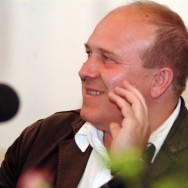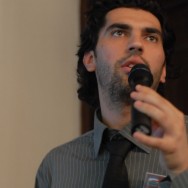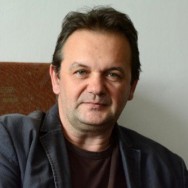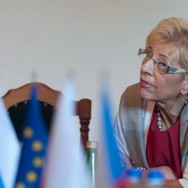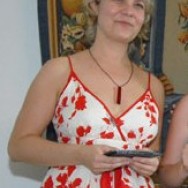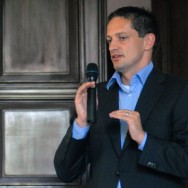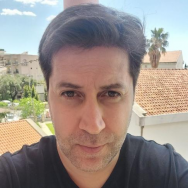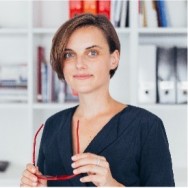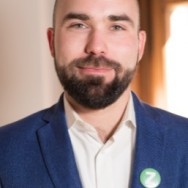Hungarian historian and literary critic, teacher and translator. Translated prose of Czesław Miłosz, Witold Gombrowicz, Gustaw Herling-Grudziński, Antoni Libera, Krzysztof Varga and many works of contemporary Polish literature. Awarded by the Polish Cultural Foundation for the promotion of Polish books in the world (2013).
Experts
Metodija Papazoski
Studied at the University of St. Cyril and Methodius in Skopie, Macedonia. Graduated with a bachelor degree in International Trade. He also graduated with merits both from Bradford School of Economics, as well as from William R. Boone HS in USA with a master degree in Management and Economy. Metodija also received the Presidential Scholarship at Valencia Community College. He used to work for the leading Polish fabrics manufacturer where he was responsible for the market studies and new customer acquisition. As a PMR Consulting team member (since 2006 to present) he has been involved in researches of the SEE markets.
Attila Z. Papp
Graduated from the Faculty of Sociology, Western University of Timisoara in 1996 and received his Ph.D. in sociology from Eötvös Loránd University, Budapest in 2006. His research areas are minority institutions in education and media, education politics, Hungarian communities in the Carpathian Basin, and education of Roma in Hungary, Romania, Slovakia and Ukraine. He is editor in chief of the periodical REGIO, and senior research fellow and director of the Budapest-based Institute for Minority Studies, Centre for Social Sciences, Hungarian Academy of Sciences.
Janina Paradowska
Political journalist of the Polish weekly Polityka, and Radio TOK FM. Graduated from the Jagiellonian University. Began her career in journalism in the Kurier Polski, later in the Życie Warszawy. Winner of the Ksawery and Mieczysław Pruszyński Foundation Award, of the Bocheński Award, and numerous awards of the Polish Journalists Association. Journalist of the Year 2002 – Grand Press.
Patricia Pászt
Born in Budapest. Studied Polish and Hungarian Philology, Philosophy and Tourism. Translator, journalist, founder and Director of the Polish-Hungarian Foundation Cracovia Expres. In 1995-1996 worked at the Polish Institute in Hungary as a translator and project coordinator. Currently, she is terminating her PhD thesis on Polish literature at the University of Debrecen, Hungary.
Viliam Pätoprstý
Chief Analyst of UniBanka Slovakia, member of UniCredit Group. Graduated in economics from Bocconi University in Milano and in banking and finance from University of Economics in Bratislava. Until 2001 worked with MESA10 - an independent economic think-tank. In 2001 he joined UniBanka. He is an author and a co-author of several publications and studies in the field of banking sector and economic development. He is regularly quoted by local and international media on current economic issues.
Joanna Pawluśkiewicz
Writer, scriptwriter, film producer, awarded with a scholarship of Minister of Culture and Art, student of Second City in Chicago. Author of two books: "Telenovela" and "Cleaning Lady". The last one was inspired by a three years lasting stay of Pawluśkiewicz in USA, where she was working and travelling. Co-founder of the Moma Film Foundation. Runs a project "New Urban Legends" - educational film/literature project for children and adults. The "New Urban Legends" project won a prize in "Polish Short Films" in New Horizons Festival. Now, she writes for HBO Europe and cooperates with Chlodna 25 Comedy Club in Warsaw.
Ersan Pekin
Ersan Pekin is a Turkish writer and former journalist. He is the author of Kadınlar Yedi Bitirdi Beni (Consumed by Women), published in 2013, which tells the story of a man suffering from sex addiction. He self-published the Puzzle trilogy (2019-2021) as well as three novels in English: "Roots" (2021), "Pathetic and Synthetic Thoughts in a Jar" (2021) and "Earthscraper" (2021). His novels explore the dynamics of relationships between men and women, and blurred lines between reality and dreams. Several of his short stories have been published in Berfin Bahar and İnsancıl magazines.
A former journalist, Ersan Pekin previously worked as a reporter at the Ankara bureau of Ulusal Kanal, a private nationwide TV channel. He joined Ulus Gazetesi, a newspaper, in 2016 where he worked as editor-in-chief until he was dismissed from his role in 2019, reportedly for his ‘liberal and antimilitarist ideas and writings’.
Bozhena Pelenska
Bozhena Pelenska is an Artistic and Executive Director of the Jam Factory Art Center, responsible for programming, communication, strategic development, and partnership.
She studied culture and philosophy in leading Ukrainian and international programs (Lviv National University, Ukrainian Catholic University, University of Ottawa), as well as management at the Institute of Management in Lviv and Visegrad Academy for Cultural Management.
Bozhena has been working in the cultural sphere since 2006. Bozhena joined a fresh team in the Lviv City Council - the Department of Culture and Tourism. During this period, the team launched the first creative grant program in the city, initiated different festivals and cultural programs, and worked on the city designing project and the Lviv cycling infrastructure development program.
Jednda Perla
Jenda Perla is a Marketing Manager at Dataweps, Brno (Czech Republic) based company developing data tools of online retailers and e-commerce players in Central and Eastern Europe. Company is developing the tool for monitoring social media and online discussions and websites, which is used by several NGOs to monitor fake news. He is also a member of the Board of Czech Green party, responsible for its external communication.

